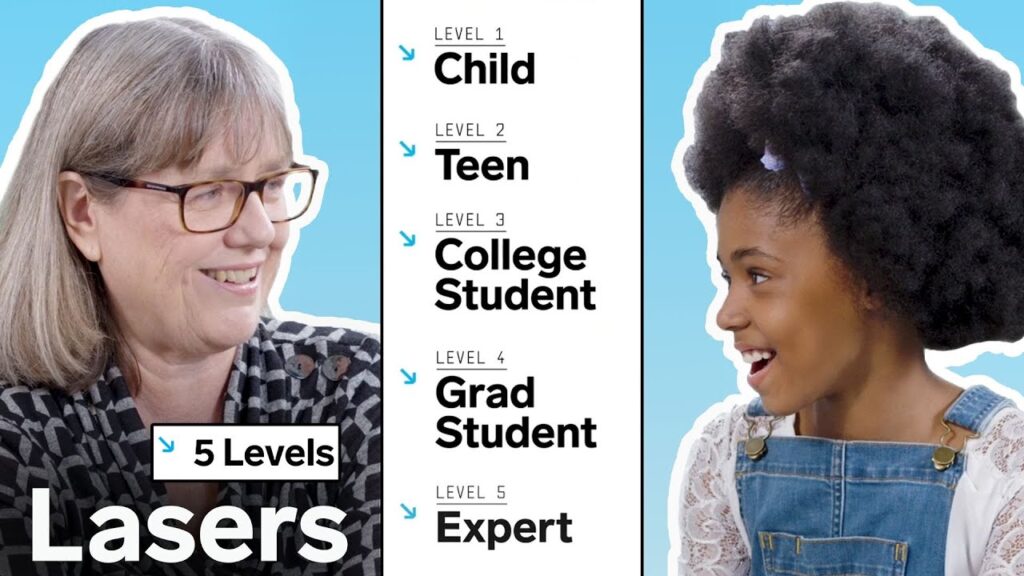Expert Waste and Recycling Advice: Q&A with Meredith Danberg-Ficcarell
Summary
Meredith Danberg-Ficcarell answers questions from Twitter about waste and recycling. She talks about zero waste, advises against launching waste into space and burning it, explains the importance of recycling and composting, and touches on various environmental concerns.
Table of Contents
- Zero Waste: Understanding and Implementing It
- The Risks of Launching Waste into Space and Burning It
- The Importance of Recycling and Composting
- Microplastics, Overflown Landfills, Amazon Packaging, and More
Introduction
As the world population grows, so do our waste and pollution problems. It’s more vital than ever to not only reduce waste but also ensure proper disposal of it. Meredith Danberg-Ficcarell is an expert in waste and recycling. She tackles various environmental challenges and shares her knowledge about how we can address waste issues, educate ourselves and others, and create a better future for our planet.
Q&A
Zero Waste: Understanding and Implementing It
Question: What does zero waste actually mean? We understand the concept of zero waste but how can we adopt it in our lives and communities?
Answer: Zero waste is a philosophy that aims to waste as little as possible. It involves designing out waste at every stage of the process from production to disposal, and promoting the responsible use and reuse of resources. It is important to recognize that zero waste is not an overnight solution but rather a gradual transition. Everyone can adopt a zero-waste lifestyle by following the five Rs: refuse, reduce, reuse, recycle and rot (compost). We can start by refusing single-use plastics like straws and bags, buying in bulk to reduce packaging waste, choosing to repair or repurpose rather than discard, composting organic materials, and so on. Communities can adopt this philosophy by setting up a system to recycle, compost, and reuse, and creating policies that support zero waste.
The Risks of Launching Waste into Space and Burning It
Question: What would happen if we launch our waste into space? And what about burning it?
Answer: Launching waste into space is not the solution. It may seem like a grand idea, but it is neither practical nor safe. Space launches require a lot of energy, resources and manpower, and they create emissions that contribute to climate change. Furthermore, waste in space could collide with space debris, leading to the creation of thousands of small particles that pose a threat to satellites and future space exploration. Incineration, or burning waste, is also not an ideal solution because it releases harmful toxins into the atmosphere and endangers human lives. It’s important to focus on reducing waste at its source and finding sustainable solutions, such as recycling and composting.
The Importance of Recycling and Composting
Question: Why does recycling and composting matter? And what exactly is composting?
Answer: Recycling is essential because it saves natural resources, energy, and labour that were used to produce the item. When we recycle, we reduce pollution and the need to extract or mine virgin materials. Composting is a process that turns food scraps and yard waste into rich soil that can be used to fertilize plants. Composting is a way of recycling organic matter in a controlled environment, where food scraps and yard waste are mixed together with air, generating heat that reaches a PFRP or the process to further reduce pathogen temperature. Composting also diverts waste from landfills, where it can contribute to greenhouse gas emissions. Composting is a simple and effective way to recycle and is something anyone can do at home.
Microplastics, Overflown Landfills, Amazon Packaging, and More
Question: What can we do to prevent ocean pollution, specifically microplastics? What are some solutions for overflowing landfills? How can Amazon improve their packaging? What is the responsible disposal of obsolete electronics? How can we start a workplace recycling program?
Answer: Microplastics are tiny pieces of plastic that can be found in our oceans, rivers and soil. To prevent ocean pollution, we can reduce our plastic use and properly dispose of items. Recycling and upcycling plastics can also help prevent pollution. We can also support policies that limit plastic use and address plastic pollution. Overflowing landfills can be addressed by reducing the amount of waste we produce, promoting reuse, recycling and composting. Amazon can improve its packaging by using environmentally friendly materials and reducing the amount of packaging used. Obsolete electronics should be disposed of properly by taking them to electronic waste recycling centers. Workplace recycling programs can be started by assessing the amount and types of waste produced at work, identifying recycling opportunities, and engaging employees to participate.
Conclusion
Waste and pollution are pressing issues and our actions have a significant impact on the environment. It’s important to be mindful of our waste and educate ourselves and others on responsible disposal methods. By adopting a zero-waste philosophy, recycling and composting, and promoting sustainable practices, we can reduce waste and pollution and create a healthier planet for future generations.







